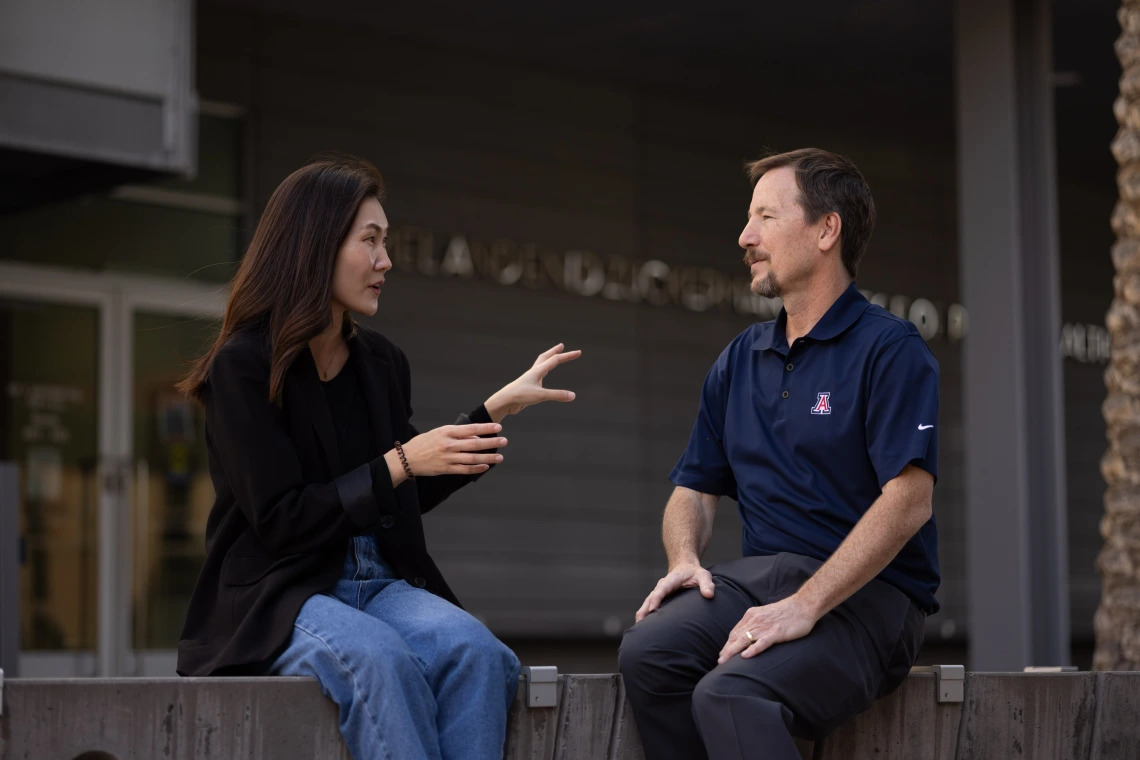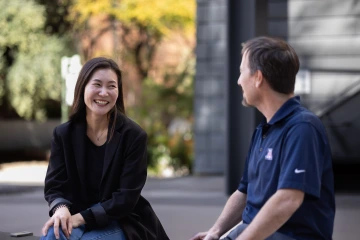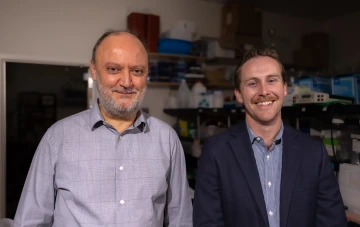Are you in search of a post-doctoral fellowship in cancer research?

The T32 offers career-making mentorship and transformational training
For more than 45 years, the University of Arizona Cancer Center has had an invaluable training grant through the National Cancer Institute known as the T32.
This year, the Cancer Center has two T32 openings for postdoctoral fellows with doctoral degrees relevant to cancer prevention and control (CPC) science who are interested in advancing their research program to address cancer prevention and control and cancer related health disparities.
“The T32 provides fellows with critical protected time to establish a focused research idea and related programming,” said Cancer Center member Cynthia Thomson, PhD, RDN, T32 corresponding principal investigator. “It provides them with specific training opportunities to hone their skills and knowledge. It is also a critical time for developing professional relationships and collaborations to carry their research agenda forward in a meaningful way.”
Thomson, a professor in the UArizona College of Public Health, Nutritional Sciences and Wellness, and the BIO5 Institute, was a T32 trainee from 1998-2000 before joining the university faculty.
She is one of three multiple principal investigators on the T32, including Cancer Center members Robin B. Harris, PhD, MPH, and Terry Badger, PhD, RN.
The benefits of being a T32 fellow

The program is a two-year traineeship with exceptional mentors in cancer prevention and control science. Selected fellows engage in innovative research, submit research funding proposals, publish in peer-reviewed scientific journals, and have several opportunities to present their research at scientific conferences around the globe. The program offers preparation for independent cancer prevention academic research careers with a unique population in an environment that addresses health disparities.
“Mentorship is central to our success,” Thomson said. “Having a strong mentoring opportunity for the fellow is an important criterion for acceptance into the training program.”
Each trainee has a primary mentor, responsible for supporting the individual development plan with the student and other secondary or content-specific mentors. Thomson said the fellows’ primary mentor will be at the university, but others may come from across the U.S. or internationally.
One example of the program’s success includes former fellow Celina I. Valencia, DrPH, who is now an assistant professor in the UArizona Family and Community Medicine. She is a health equity scientist focused on developing novel methods for measuring the role of social determinants of health on the breast cancer mortality disparity experienced by women from historically marginalized communities in the U.S.
For her fellowship training, Valencia’s focused on training in epidemiology and data science analytical approaches to identify and evaluate cancer disparities. Valencia worked with Harris as her mentor.
“They provide a unique and carefully curated scientific training experience that is strategically designed to ensure that the trainee successfully accomplishes their training goal,” said Valencia of the program’s multiple principal investigators. “Additionally, they provide professional development experiences to ensure that the trainee is well positioned to launch to the next career level.”
Joining the newest fellows
Two of the four postdoctoral fellowship positions are already filled. The selected T32 scholars currently in training are Sarah Yeo, PhD, MPP, and Zachary Compton, PhD.
Yeo said her research involves elucidating multilevel factors influencing cancer prevention, including modifiable risk factors, cancer screening behaviors, and healthcare access among refugee populations. Her T32 mentor is Cancer Center member Scott Carvajal, PhD, MPH.
“I selected my mentor because our research interests closely intersected,” she said. “He possesses substantial expertise in health disparities among Hispanic immigrants through community-based participatory research.”
Carvajal’s project, “Understanding Ecologic Stress, Risk, and Health Resiliencies in Mexican-Origin Adults Living in a High Poverty Rural Community,” explores factors influencing health outcomes among foreign-born Hispanic immigrants.
Yeo said that by collaborating with Carvajal on this project, she anticipates gaining invaluable insights into cancer prevention among foreign-born immigrants, improving her skills in data analysis, and gaining familiarity with NIH-funded research.
“Participating in a career development award such as T32 is an accomplishment in itself, which can be perceived favorably by future reviewers,” she said. “More importantly, it offers fellows increased flexibility and autonomy to discern and prioritize their career goals and essential development needs. Additionally, I think that fellows have better access to resources and learning opportunities as they are considered as a significant part of the program.”

Through his T32 training program, Dr. Compton is developing methods to measure tumor phenotypic plasticity and evolvability as a means of predicting progression in pre-malignant models of oral squamous cell carcinoma.
His mentor is Carlos Caulin, PhD, associate professor in the UArizona Department of Otolaryngology and director of Translational Head/Neck Cancer Research.
“Although Dr. Caulin didn’t have any direct experience in my specific line of work, he has so many of the traits a young career scientist should seek out in a mentor,” Compton said. “I think Dr. Caulin is second to none at the university when it comes to NIH grant writing. He and I have different but matching, foci in our research, and the mentor/mentee relationship is wonderfully complementary.”
To qualify for the training program, applicants must be a U.S. citizen or permanent resident. Applicants representing diverse groups are encouraged to apply.
To learn more about applying, complete the T32 Interest Form or email Rebecca Crocker, PhD at rcrocker@arizona.edu. View the Cancer Center T32 main page for general information.

